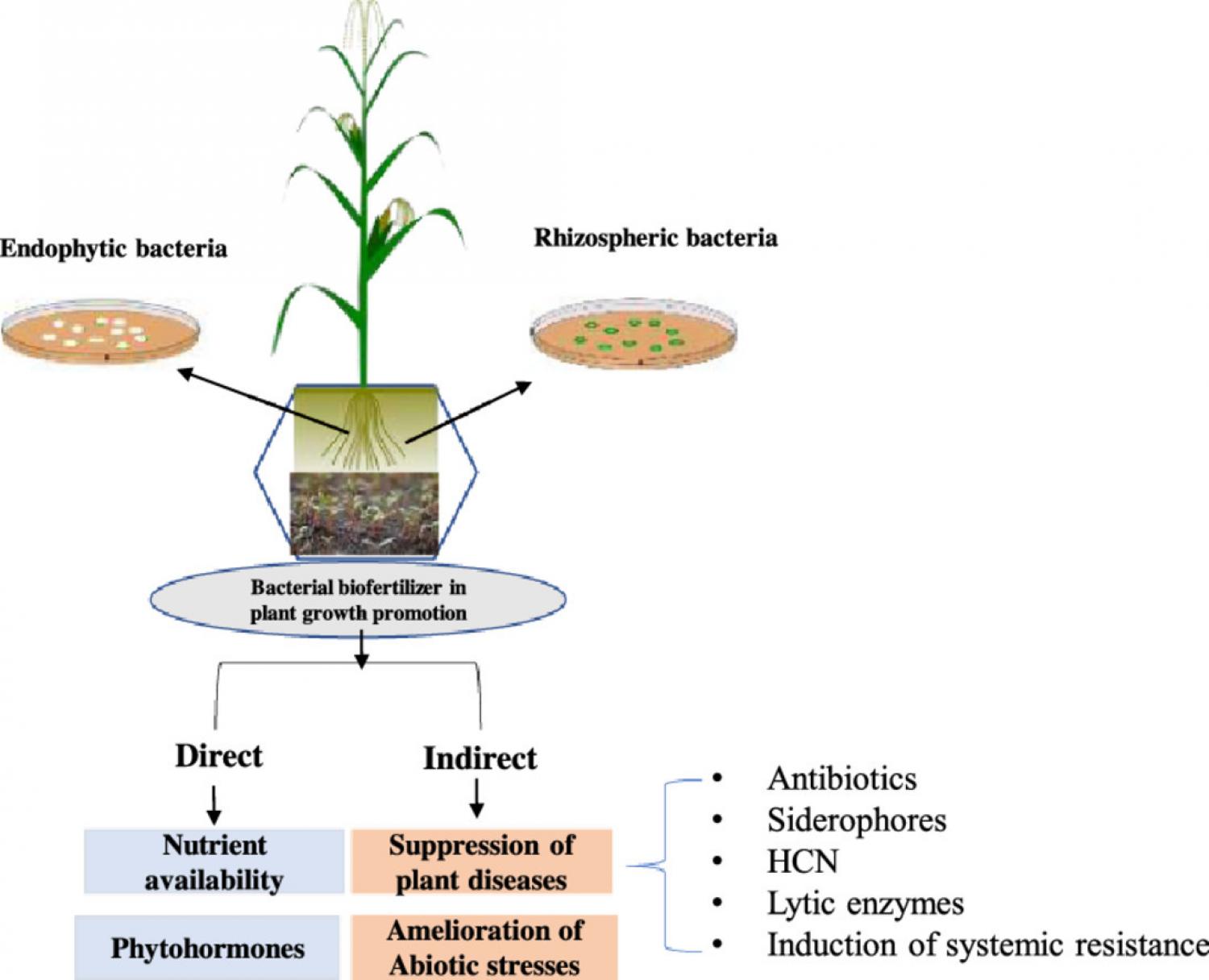
Modern intensive agricultural practices face numerous challenges that pose major threats to global food security. In order to address the nutritional requirements of the ever-increasing world population, chemical fertilizers and pesticides are applied on large scale to increase crop production. However, the injudicious use of agrochemicals has resulted in environmental pollution leading to public health hazards. Moreover, agriculture soils are continuously losing their quality and physical properties as well as their chemical (imbalance of nutrients) and biological health. Plant-associated microbes with their plant growth- promoting traits have enormous potential to solve these challenges and play a crucial role in enhancing plant biomass and crop yield. The beneficial mechanisms of plant growth improvement include enhanced nutrient availability, phytohormone modulation, biocontrol of phytopathogens and amelioration of biotic and abiotic stresses. Solid-based or liquid bioinoculant formulation comprises inoculum preparation, addition of cell protectants such as glycerol, lactose, starch, a good carrier material, proper packaging and best delivery methods. Recent developments of formulation include entrapment/microencapsulation, nano-immobilization of microbial bioinoculants and biofilm-based biofertilizers. This review critically examines the current state-of-art on use of microbial strains as biofertilizers and the important roles performed by these beneficial microbes in maintaining soil fertility and enhancing crop productivity.
